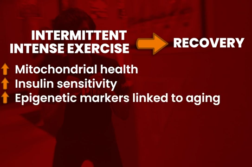ORLANDO, Fla. (Ivanhoe Newswire) — There will be more than 230,000 new cases of lung cancer this year in the U.S. About 130,000 will die from it. Smoking is one of the biggest risk factors for cancer, but just because you are not a smoker, does not mean you eliminate your risk for cancer. There may be a way you can lower your risk and it all starts in the kitchen.
It’s well known what you breathe into your body has a great impact on your lungs. But what about what you eat? A study from Vanderbilt University has found people who had a diet high in fiber and yogurt had a 33 percent lower risk of developing cancer than those who didn’t consume fiber or yogurt at all. That might be because fiber and yogurt’s prebiotic and probiotic properties promote growth of beneficial microorganisms in the intestines, which can limit cancer cells from forming. The results were the same regardless of if a person was a smoker or not.
“The biggest risk factor, it turns out, for getting lung cancer is having lungs,” explained Siddhartha Devarakonda, MD, an oncologist at Washington University School of Medicine.
Vegetables, such as broccoli, cauliflower and brussel sprouts can also lower your risk for cancer by 40 percent. They contain a substance called indole-3-carbinol that can repair damage done to cells from carcinogens, which is found in tobacco products, before they can turn cancerous. And a Singapore Chinese health study found that diets high in beta-cryptoxanthin lowered cancer risk by about 25 percent, and by 37 percent in smokers. These foods include, carrots, red bell peppers, oranges and peaches. Even though diet may play a role in keeping cancer at bay, the biggest way to lower your cancer risk is, “To not smoke and to not pick up a cigarette. If you’re already a smoker, it’s not too late. Quit smoking,” Dr. Devarakonda said.
A study from MD Anderson Cancer Center found that former smokers who had enough folate in their diet lowered their risk of cancer by 40 percent. Foods rich in folate include spinach, beans, and kale.
Contributors to this news report include: Milvionne Chery, Producer; Roque Correa, Editor.
Sources:
https://www.cancer.org/cancer/lung-cancer/about/key-statistics.html
https://www.sciencedaily.com/releases/2019/10/191025113010.htm
https://www.readersdigest.ca/food/healthy-food/5-foods-reduce-risk-lung-cancer/
THE RIGHT DIET LOWERS LUNG CANCER RISK BY 40%
REPORT #2937
BACKGROUND: Lung cancer occurs when cells divide in the lungs uncontrollably resulting in tumor growth. Lung cancer is the third most common cancer and the main cause of cancer-related death in the United States. Smoking is a major risk factor, though not everyone who develops lung cancer has a history of smoking. The two main types of lung cancer are small cell lung cancer and non-small cell lung cancer, depending on how they appear under a microscope. Non-small cell lung cancer is more common than small cell cancer. Anyone can develop lung cancer, but cigarette smoking and having exposure to smoke, inhaled chemicals, or other toxins can increase the risk.
(Source: https://www.medicalnewstoday.com/articles/323701)
DIET AND LUNG CANCER: Diet may help enhance your overall health, help improve energy levels, and give you more strength during lung cancer treatment. However, it may be difficult to eat a well-balanced diet as treatments can reduce appetite. Chemotherapy might change the way food tastes and make your mouth too sore to eat anything. The goals of diet during lung cancer are to provide you with enough calories to prevent weight loss; give you the essential nutrients your body needs, including vitamins, minerals, protein, healthy fats, and carbohydrates; and help relieve treatment side effects like diarrhea, nausea, or constipation. Some research suggests that the keto diet may be effective for treating advanced cancers, including lung cancer. However, studies have shown it may be too difficult to follow especially when undergoing treatments like chemotherapy and radiation as it can lead to decreased calorie intake. Research in this area is ongoing.
(Source: https://www.healthline.com/health/lung-cancer/lung-cancer-diet)
NEW DRUG TARGETS LUNG CANCER: A new targeted therapy is shrinking tumors and shows promise in improving survival in lung cancer patients. Medical oncologist, Ramaswamy Govindan, MD, of Washington University School of Medicine in St. Louis, studied a newly FDA-approved drug, sotorasib. The new study showed that sotorasib benefits some patients who have non-small cell lung cancer that has a specific mutation in the KRAS gene. The drug is designed to shut down the effects of the mutation, which is found in about 13 percent of patients with lung adenocarcinoma, a common type of non-small cell lung cancer. “The new drug is addressing an unmet need for these patients, targeting the most common mutation that we can go after. We’re also continuing to investigate this drug in combination with other experimental drugs to see if we can further improve responses and survival,” said Dr. Govindan. The drug caused at least some tumor shrinkage in 102 out of 126 patients, and about 37 percent of the patients’ tumors reduced in size at least 30 percent. In contrast, response rates to standard therapy in these patients range from six to 20 percent. About 7 percent of patients stopped sotorasib treatment because of severe side effects, but none were life-threatening, and no patient died because of the treatment.
* For More Information, Contact:
Judy Martin Finch
Free weekly e-mail on Medical Breakthroughs from Ivanhoe. To sign up: http://www.ivanhoe.com/ftk



